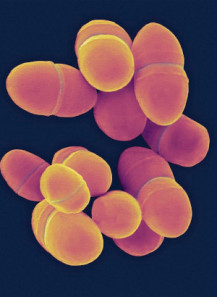Lactococcus lactis (300 billion/g) (Freeze-dried)
- Product Code: 31437
Lactococcus lactis is a bacteria commonly used in the fermentation of dairy products. This is especially true in the production of cheese and yogurt. Although they are generally not consumed directly in probiotic form
Lactococcus lactis is a bacteria commonly used in the fermentation of dairy products. This is especially true in the production of cheese and yogurt. Although they are generally not consumed directly in probiotic form
Lactococcus lactis is a bacteria commonly used in the fermentation of dairy products. This is especially true in the production of cheese and yogurt. Although it is not generally consumed directly as a probiotic like other strains of bacteria (such as Lactobacillus and Bifidobacterium), it still provides some health benefits, primarily through its role in in the fermentation process and the changes that occur in food. The following are some of the potential health benefits of Lactococcus lactis:
Improved digestion: Lactococcus lactic acid during fermentation of dairy products. It produces enzymes such as lactase, which can help break down lactose. which is the sugar found in milk This may be helpful for individuals with lactose intolerance. This is because fermented milk products may be better tolerated.
Effects of Probiotics: While not traditional probiotics, they are effective. But lactococcus Lactis can indirectly contribute to the overall balance of intestinal bacteria through its role in fermentation. Fermented foods containing lactococcus Lactis can promote a healthy intestinal microbiome when consumed regularly.
Adding Nutrients: Fermentation with Lactococcus Lactis and other bacteria It can increase the nutritional value of certain foods. For example, the fermentation process can increase the bioavailability of certain vitamins and minerals, such as B vitamins and calcium.
Lactic Acid Production: Lactococcus lactis produces lactic acid during fermentation. This can help improve the shelf life of some dairy products. This preservation process can reduce the risk of spoilage and foodborne illness.
Potential immune benefits: Some research suggests that fermented foods may have immune modulating effects. Lactic acid bacteria, such as Lactococcus lactis, are believed to interact with the gut-associated lymphoid tissue (GALT), an important part of the immune system.
Bioactive Compounds: Fermented milk products containing Lactococcus lactis may contain bioactive peptides that may have various health benefits, such as blood pressure lowering and antioxidant properties.
Supporting gut health: Lactococcus lactis helps maintain a balanced gut microbiome. It is related to overall digestive health through its participation in the fermentation process.
| Mechanism | - |
| Appearance | - |
| Longevity | - |
| Strength | - |
| Storage | - |
| Shelf Life | - |
| Allergen(s) | - |
| Dosage (Range) | - |
| Recommended Dosage | - |
| Dosage (Per Day) | - |
| Recommended Dosage (Per Day) | - |
| Mix Method | - |
| Heat Resistance | - |
| Stable in pH range | - |
| Solubility | - |
| Product Types | - |
| INCI | - |
Purchase History for
Cart
No products



